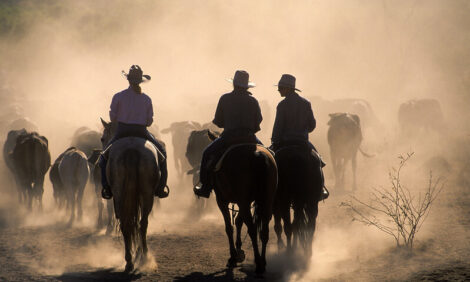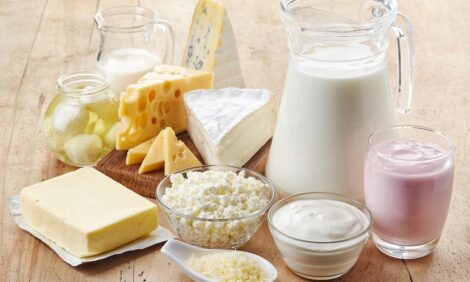



Is Consumer Trust in Beef Broken?
ANALYSIS - McDonald’s knows that where food comes from is extremely important to consumers. And they know that people love beef.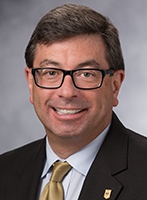
“They love hamburgers, and they like to come to McDonald’s to get them. And what we also know is that in some cases they don’t feel good about eating beef,” said Larry Stewart, senior director, global supply chain for beef, pork and fish with McDonald’s. “And we feel that’s an important perception to change."
In McDonald's view, the Global Roundtable for Sustainable Beef (GRSB) is a way to do just that and is one of the reasons they became stakeholders to support what the GRSB is doing at the global and national levels.
“We want to give people every reason to come into McDonald’s and enjoy a hamburger,” Mr Stewart said.
Clearly urban consumers are several steps away from the farm, but Mr Stewart still questions how the food chain got broken.
“A cattle producer will say ‘what do you mean we’re not sustainable – this farm has been in my family for generations, and I plan on passing it to my kids and grandkids?" Mr Stewart said. “Somewhere along the way, the trust was broken between the farmer and the consumer.”
.JPG)
“We’re looking at beef production and are addressing some of the very difficult challenges around beef production, and in North American that includes pasture land management, water management, waste management and lots of other things.”
McDonald’s believes one way to redeem that broken consumer trust is through multi-stakeholder organisations like GRSB.
“I really believe that the way GRSB is organised with producers, processors, retailers, NGOs, the entire value chain fully involved, fully informed, fully transparent, can be successful in helping consumers trust the beef supply,” he said. “We believe this work must be done and you know what - we’re going to do it.”
Mr Stewart said the regional roundtables are key to the GRSB effort.
“GRSB didn’t create any of the regional roundtables, but we help them to form and are providing them all the resources that we can muster because at the end of the day, they're the ones who are going to do the work.”
How will progress move the global beef industry toward a more sustainable approach?
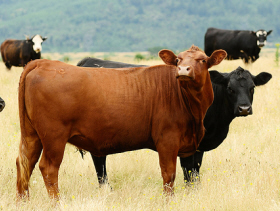
Progress toward sustainability is going to be done primarily at the local level and there's not a one size fits all approach for progress, he said. The regional roundtables are defining their indicators and those outcome measures will make the most difference from a sustainability point for their specific production system and how they produce cattle.
“GRSB can make the biggest difference by allowing the local experts – producers and industry professionals involved in raising cattle – to provide the science and data for their indicators,” he said.
“It’s going to be done by the regional roundtables as they work with local producers, local processors, the local NGOs. Each roundtable is going to have different needs and that makes sense, because no two areas are the same. No two production systems and ecosystems are the same.”
The GRSB’s role is to provide support and share the best practices while the regional roundtables gather the local data.
“If it was easy, it would already be done, but everyone wants to do the right thing. And that is encouraging,” he said.
How are the GRSB’s Principles and Criteria helping to shape McDonald’s policies?
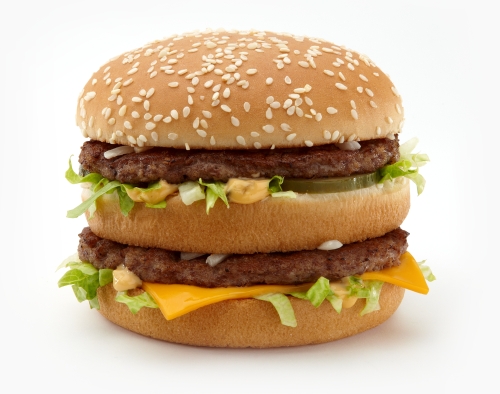 “It’s not really about McDonald’s policies so much as it is about moving the global cattle industry towards a more sustainable future. Our three E’s – environment, economics and ethics – are all equally important in sustainability,” he said.
“It’s not really about McDonald’s policies so much as it is about moving the global cattle industry towards a more sustainable future. Our three E’s – environment, economics and ethics – are all equally important in sustainability,” he said.
“We need to have sustainable beef production because we want to continue to be selling beef to our consumers for a very long time in the future.”
“We recognise that our consumers want and need to know that the beef they're buying at McDonald’s is beef that they can trust where it comes from and that we’re looking out in the best interests of sustainability. The fact that we are personally vested in GRSB shows that we are vested in the industry and to helping producers produce beef in the most sustainable manner.”
The Global Roundtable for Sustainable Beef recently met in Amsterdam with 75 members from across the food chain attending representing 28 organisations.
To read and more about objectives and outcomes of the recent meeting, click here.


